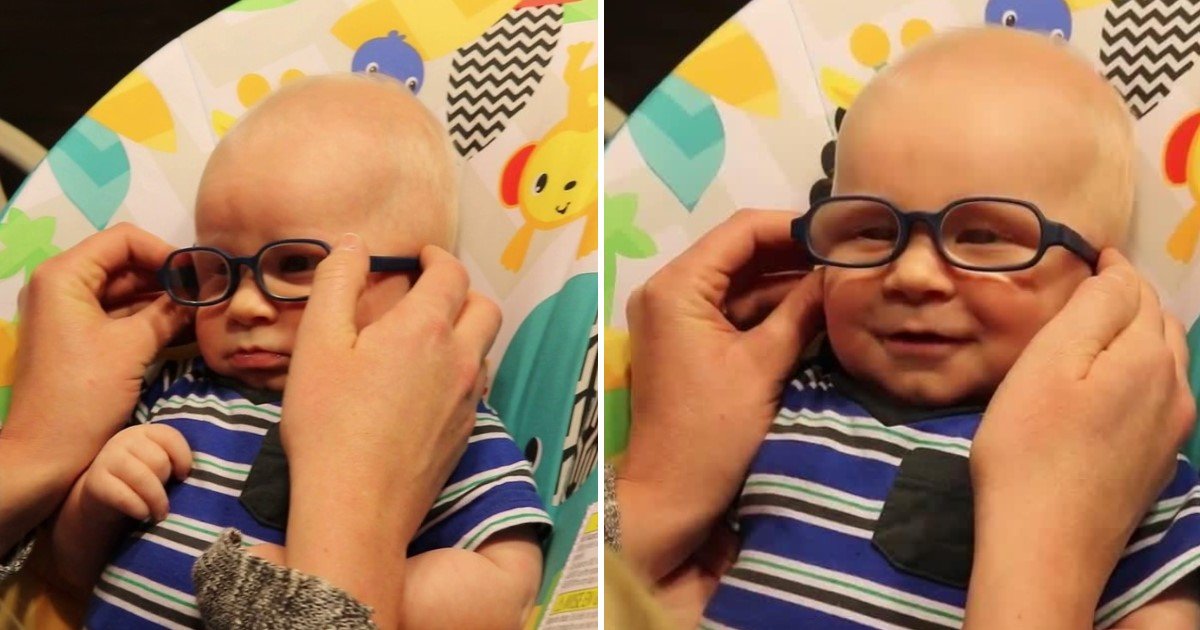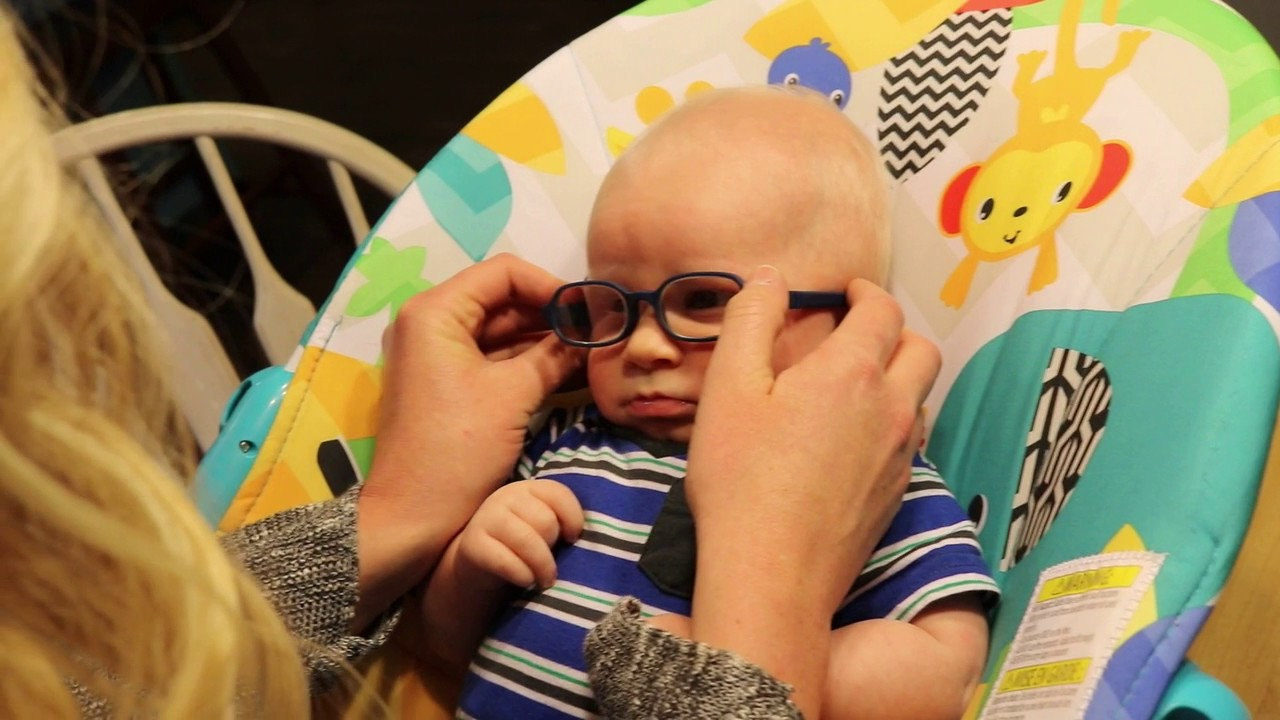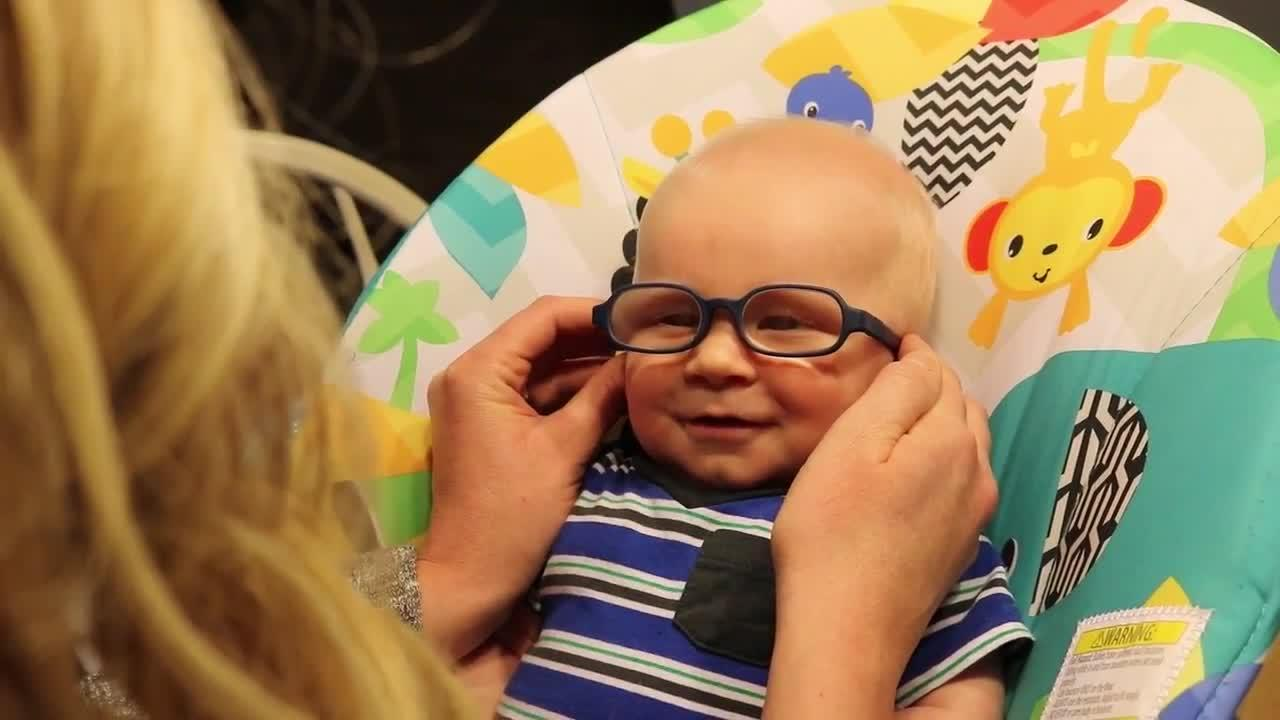Watch the precious moment below.
[rumble video_id=vqaol domain_id=u7nb2]
Video credit: Rumble
When this baby with albinism saw his mom for the first time, he gave the most adorable smile ever – and the footage showing the heartwarming moment is now doing the rounds on the internet.
Three-month-old Everett, from Warren County, IA, was born with Oculocutaneous Albinism – a rare disorder which affects the vision.
Owing to his condition, the baby had never seen how exactly his parents looked like.
So when his mom brought a new pair of glasses for him and he caught the first sight of her, he began giggling in the cutest way possible.
The people who suffer from albinism have no pigment in their hair and skin, and they also have sight problems. But a special prescription glasses – such as the one Everett’s mom brought for him – can help them see clearly.
”When our son Everett was two months old, we noticed he was not tracking objects or making direct eye contact,” his parents wrote with the footage.
”We visited with a pediatric ophthalmologist who suggested Everett has Occulocutaneous Albinism which means he lacks pigment in his eyes, skin and hair.”
As soon as Everett’s mom set the glasses on him, the cutie pie started smiling.
He also let go of a few words in his own language, wondering how everything in front of him suddenly changed to a clearer view.
When his mom asked him if he liked his glasses, the baby just beamed back at her.
Speaking of Everett’s condition, his mom said: ”It is a rare disorder which seems to be misunderstood or not widely known about, but people with albinism can do anything everyone else can do. They just need some help with vision and protection from the sun.”
She added: ”Our son is doing extremely well with his glasses so far.”
Oculocutaneous Albinism (OCA) is a type of albinism which affects both the skin and the eyes, as suggested by its name: ‘oculo’ meaning eyes, and ‘cutaneous’ meaning skin.
They are four different kinds of OCA – all of which are caused by autosomal recessive disorders or disruption of melanin synthesis due to gene mutation.
Research suggests that one out of every 20,000 people across the globe are born with Oculocutaneous Albinism.





